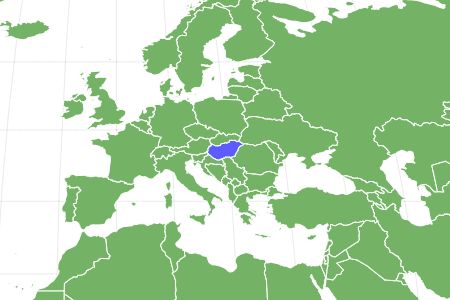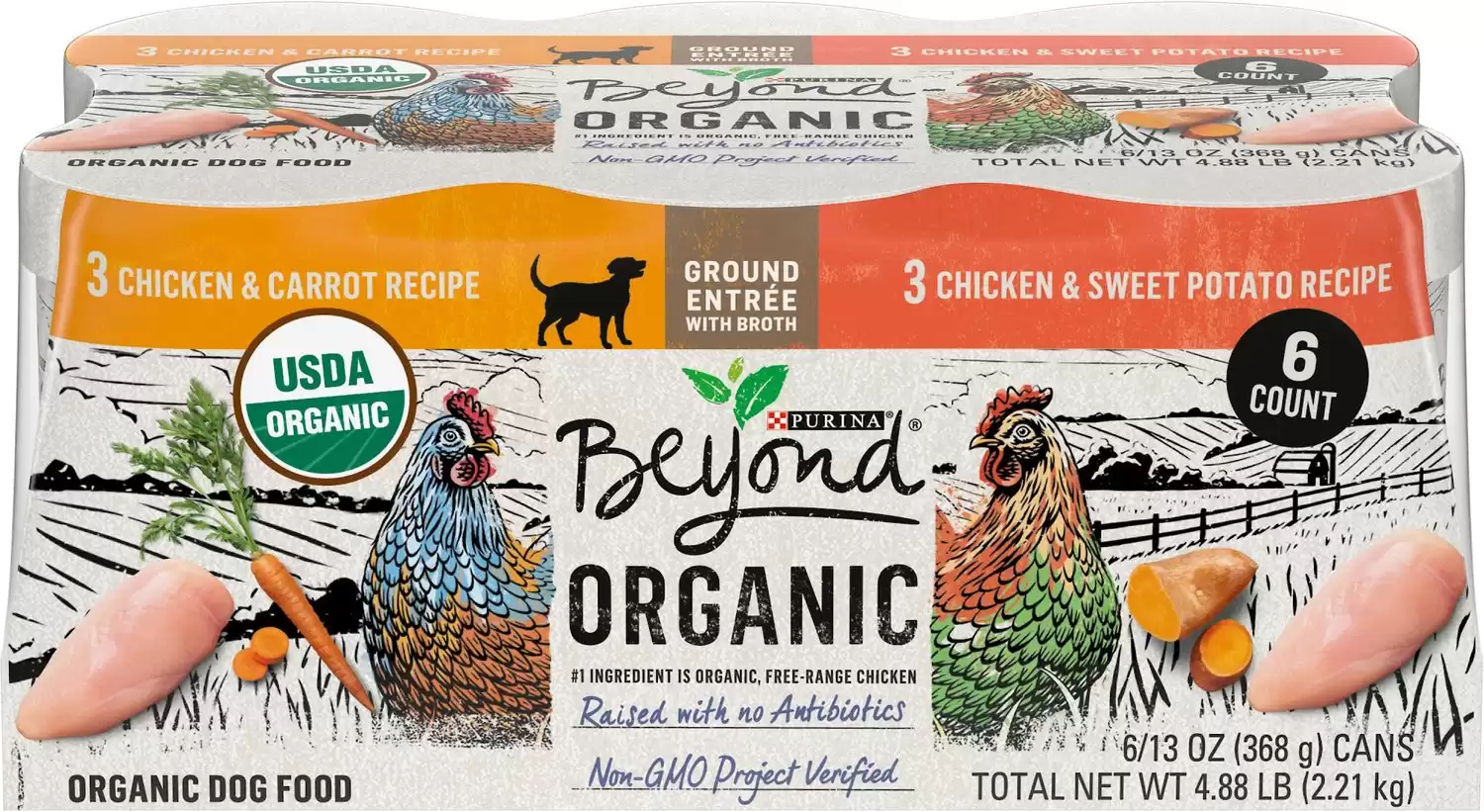Vizsla
Canis lupus
Vizsla means searcher or tracker in Hungarian
Advertisement
Vizsla Scientific Classification
- Kingdom
- Animalia
- Phylum
- Chordata
- Class
- Mammalia
- Order
- Carnivora
- Family
- Canidae
- Genus
- Canis
- Scientific Name
- Canis lupus
Read our Complete Guide to Classification of Animals.
Vizsla Conservation Status
Vizsla Facts
- Name Of Young
- puppy
- Fun Fact
- Vizsla means searcher or tracker in Hungarian
- Most Distinctive Feature
- their coat color
- Other Name(s)
- Hungarian Pointer
- Temperament
- Gentle, affectionate, and energetic
Vizsla as a Pet:
- General Health
- Energy Level
- Shedability
- Trainability
- Intelligence
- Tendency to Chew
- Size
- Family and kid friendliness
- Yappiness / Barking
- Moderate
- Separation Anxiety
- High
- Preferred Temperature
- Average climate
- Exercise Needs
- Moderate
- Friendly With Other Dogs
- High
- Pure bred cost to own
- $1,000-$1,500 on average
- Dog group
- Sporting
- Male weight
- - lbs
- Female weight
- - lbs
This post may contain affiliate links to our partners like Chewy, Amazon, and others. Purchasing through these helps us further the A-Z Animals mission to educate about the world's species.
View all of the Vizsla images!
The Vizsla hunts down its quarry by pointing with its snout. For this reason, it’s also called the Hungarian Pointer.
The Vizsla is a sleek hunting dog, an excellent tracker, and perhaps the most famous canine export from Hungary. The history of the Vizsla dates back to the 800s AD when a nomadic people called the Magyars arrived in Europe and founded the first Hungarian state. They brought with them an athletic red dog that resembles the modern Vizsla. These dogs were refined and bred further over the centuries to obtain excellent physical form so they could hunt out in the rugged fields, forests, and even waters of Hungary.
See all of our expert product reviews.
However, the breakup of the Austro-Hungarian Empire in 1919, followed by the turmoil of World War II a few decades later, nearly drove this breed to extinction. An international effort to save this dog has proved to be a remarkable success. The dog now consistently ranks around the 30th or 31st most popular breed by the American Kennel Club.
The modern Vizsla is characterized by a lean but muscular body, a long and sinewy tail, droopy ears, and a short, smooth, and dense golden rust coat. This dog should not be confused with the Wirehaired Vizsla, a closely related but distinct breed whom it resembles. While the Vizsla’s original purpose was to track down small game such as foxes, rabbits, and fowl, today it makes for a devoted companion and friend in the home. It also excels as a therapy assistant, an athlete, and a police dog.
Vizsla Vs. Weimaraner
The Vizsla is often mistaken for a Weimaraner (a German hunting dog) on account of the similar body shape and coat density. The main difference is that the Weimaraner has a gray coat with gray or bluish-gray eyes, which has given it the nickname of the Gray Ghost.
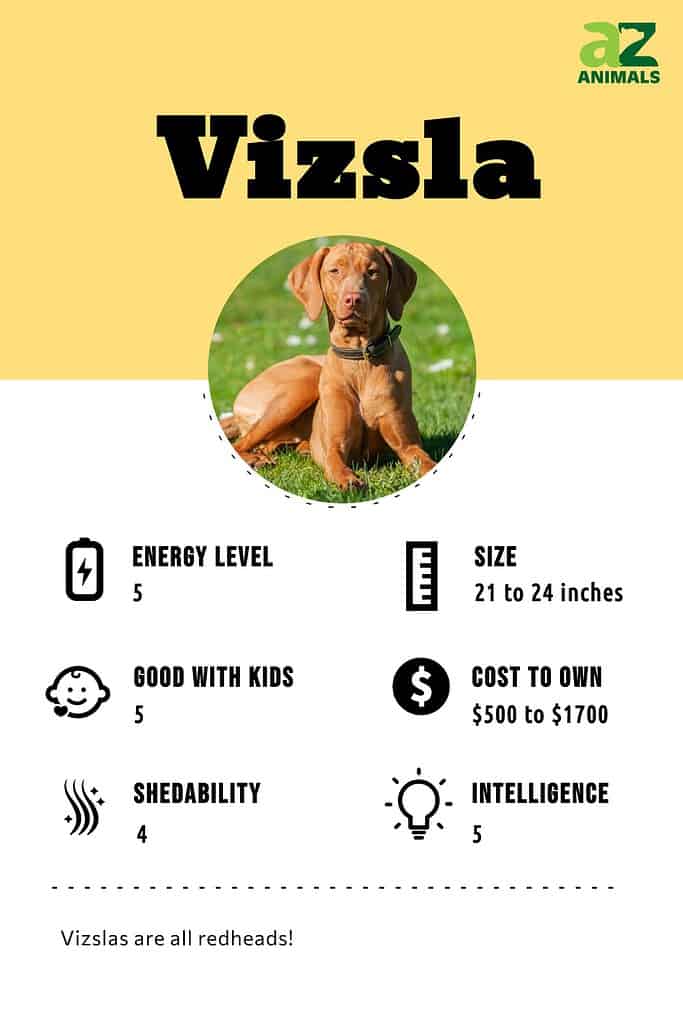
3 Pros And Cons Of Owning A Vizsla!
| Pros! | Cons! |
|---|---|
| Very Affectionate: The Vizsla is an excellent companion for the entire family. | High Mental and Physical Needs: Owners should expect to spend a lot of time keeping this breed occupied. |
| Highly Trainable: This breed responds very well to clear and consistent training methods. | Strong Prey Drive: This breed may have the tendency to chase after small animals. |
| Versatile: This breed excels at hunting, therapy, police work, sports and athleticism, and basic companionship. | Highly Sensitive: Confidence doesn’t come naturally with this breed. It must be built up over time. |
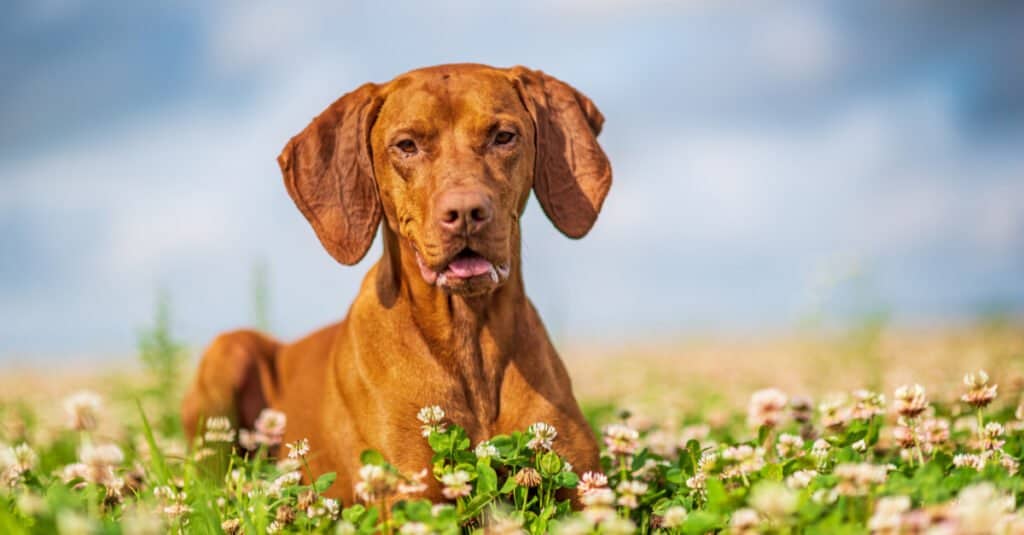
©shymar27/Shutterstock.com
Size And Weight
The Vizsla is a medium-sized dog with a lean and athletic frame, standing around two feet in shoulder height. Unfortunately, if the size does not suit you, the breed standard does not allow for a smaller mini Vizsla. The only way to obtain a mini version of this breed is with a mixed dog. The Vizsla can be mixed with many different types of mini dogs, including Beagles and Poodles. These mixed dogs can produce lots of unique physical and behavioral combinations.
Health and Entertainment for your Vizsla
See all of our expert product reviews.
| Height (Male): | 22 to 24 inches |
| Height (Female): | 21 to 23 inches |
| Weight (Male): | 55 to 60 pounds |
| Weight (Female): | 44 to 55 pounds |
Types Of Vizslas

There are two types of Vislas that are officially recognized as separate breeds.
©Ivanova N/Shutterstock.com
While the Vizsla comes in four different coat variations – wirehaired, shorthaired smooth, longhaired wired and longhaired non-wired – there are only two types of these that are officially recognized as separate breeds, the Hungarian shorthaired vizsla and the Hungarian wirehaired vizsla. Because the longhaired variations have a recessive trait that can occur at anytime, they are not recognized.
Common Health Issues
The Vizsla is a very healthy dog with a typical lifespan of 12 to 15 years, but it might be susceptible to several conditions, including seasonal allergies, minor eye disorders, ear infections, epilepsy, cancer, and a developmental disorder known as hip dysplasia, in which the hip joint comes loose from the socket, causing lameness and pain. Some of these problems can be caught early on with a thorough health evaluation. Good breeders will ideally test their own dogs for common developmental and eye disorders before the point of purchase. Regular visits to the vet are also essential to maintain good health. In summation, these are the most common health problems with the Vizsla:
- Allergies
- Eye disorders
- Ear infections
- Cancer
- Epilepsy
Temperament
The Vizsla has a gentle and affectionate personality that belies its sturdy size and hunting prowess. It is affectionate, loyal, playful, energetic, and even fairly open to strangers. This breed does have a very active, roaming mind and needs plenty of activities to keep it occupied throughout the day. Owners can channel this mental energy into tricks, games, retrieving activities, and problem-solving tasks. If its mental needs aren’t adequately fulfilled by its owner, then it might channel this energy into more destructive or annoying behavior.
How To Take Care Of The Vizsla
The Vizsla is not a good choice for a casual or inexperienced owner. It needs someone who’s fully engaged throughout the day in maintaining its mental and physical health. This highly adaptable dog can also adjust to an apartment setting, as long as you have enough open space nearby to provide physical activity.
The Best Dog Food For Vizsla Dogs
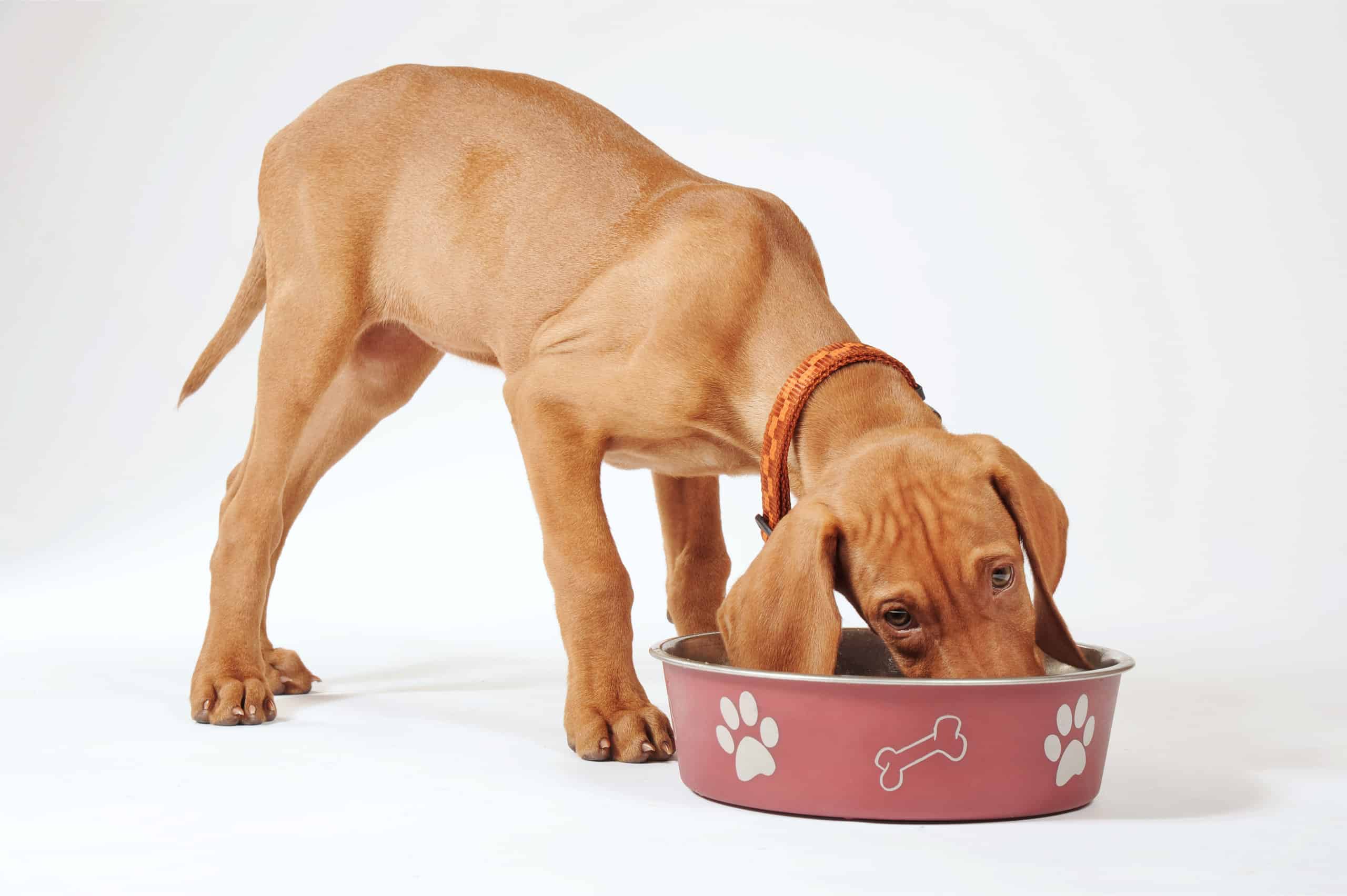
Its always best to feed your Vizsla the highest quality natural ingredients to curb common health issues.
©AndrasKiss/Shutterstock.com
The Vizsla will need a few cups of dog food per day, based on its size, age, and activity level. Both commercial and homemade food should be sufficient to satisfy its needs.
Vizsla dogs tend to be quite healthy, with the exception of a few health problems typically found in many breeds of dogs. But, as a loving dog owner, you want the best for your Vizsla.
The best way to curb common health issues like allergies, ear and eye irritation, joint problems, and cancer is to feed your Vizsla dog the highest quality natural ingredients in organic dog food.
So, A-Z Animals suggests Purina Beyond Organic High Protein Dry Dog Food & Wet Dog Food for a Vizsla.
It’s packed with protein from certified organic free-range chicken, free from antibiotics, synthetic chemicals, and artificial ingredients. Feeding your Vizsla top-notch food it will really enjoy is the first step to giving your dog a long, healthy life.
Click here to get Purina Beyond Organic on Chewy or Amazon.
- Beyond Organic non-GMO dog food pate with free-range chicken
- No prohibited synthetic pesticides or fertilizers
- Added vitamins and minerals and with no artificial colors, flavors or preservatives
- No corn, wheat, soy or poultry by-product meal
Maintenance And Grooming
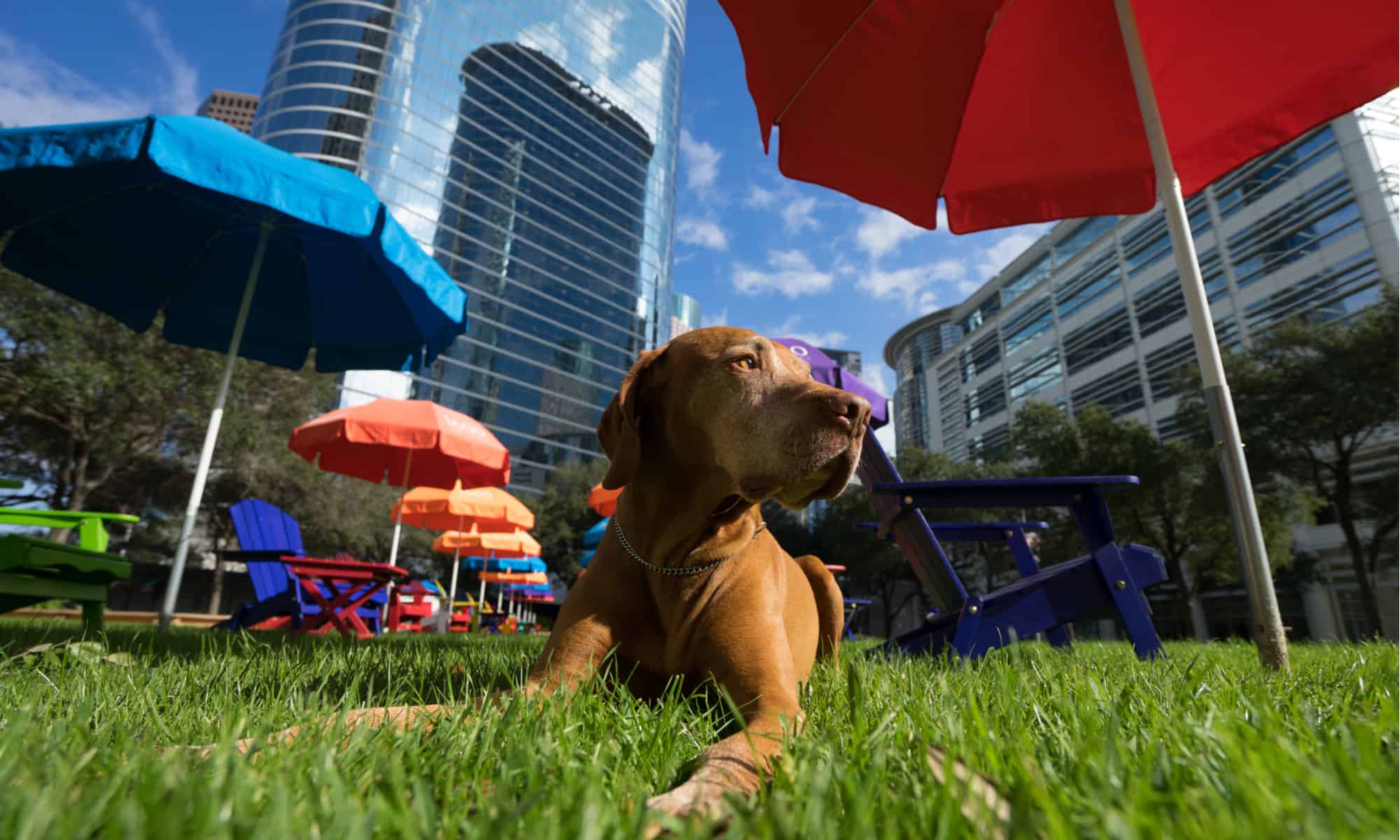
With a single-layered coat, the Vizsla has moderate shedding and brushing occasionally should keep their coats healthy and clean.
©Barna Tanko/Shutterstock.com
The Vizsla has a basic single-layered coat with only a moderate amount of shedding. A simple rubber grooming brush used from time to time should suffice to keep the coat healthy and clean. Bathing should be done with mild lukewarm water and high-quality dog soap only when the coat becomes particularly dirty. Owners should also strive to keep the toenails short with a clipper or grinding tool in order to prevent them from cracking or clicking on the floor. This should be complemented with frequent attention paid to the dog’s dental hygiene; a special kind of toothpaste formulated for dogs should work to keep the teeth and gums healthy. Finally, owners should check for signs of ear infections or dirt and wax buildup. You can treat it with a simple cotton swab and ear-cleaning product.
Training
The Vizsla is an intelligent and capable breed, eager to learn everything you can teach it. As a sensitive dog, it will benefit from consistent and positive reinforcement methods to bolster its confidence. Fortunately, the entire process should be a breeze. The Vizsla is very focused on the task and enjoys the time spent with its owner.
Exercise
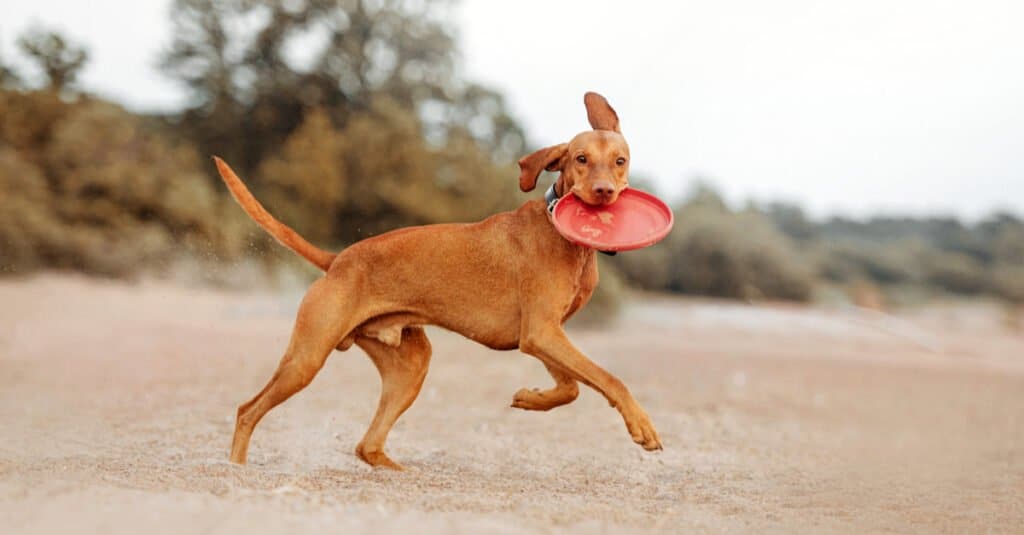
The vizsla is highly active and should get plenty of daily exercise.
©Ksenia Raykova/Shutterstock.com
The Vizsla is a highly active dog that will need more than 30 minutes of exercise every day. It should be satisfied with long walks, games of fetch, and at least some time spent running freely off the leash. It should also excel at agility challenges and tricks.
Puppies
More than most dogs, Vizsla puppies will benefit from early socialization and training. This breed can be incredibly creative in the ways it can get into trouble, and by neglecting its training, you might just be encouraging some bad behavior later on as an adult. Fortunately, these puppies have a natural love of people; they should socialize and train very well. One thing that can help is crate training. While not mandatory, it can improve the housebreaking process and reduce behavioral issues. Another thing to keep in mind is that you should probably limit both the amount and the intensity of exercise until the puppy’s body has matured at about 18 to 24 months old.
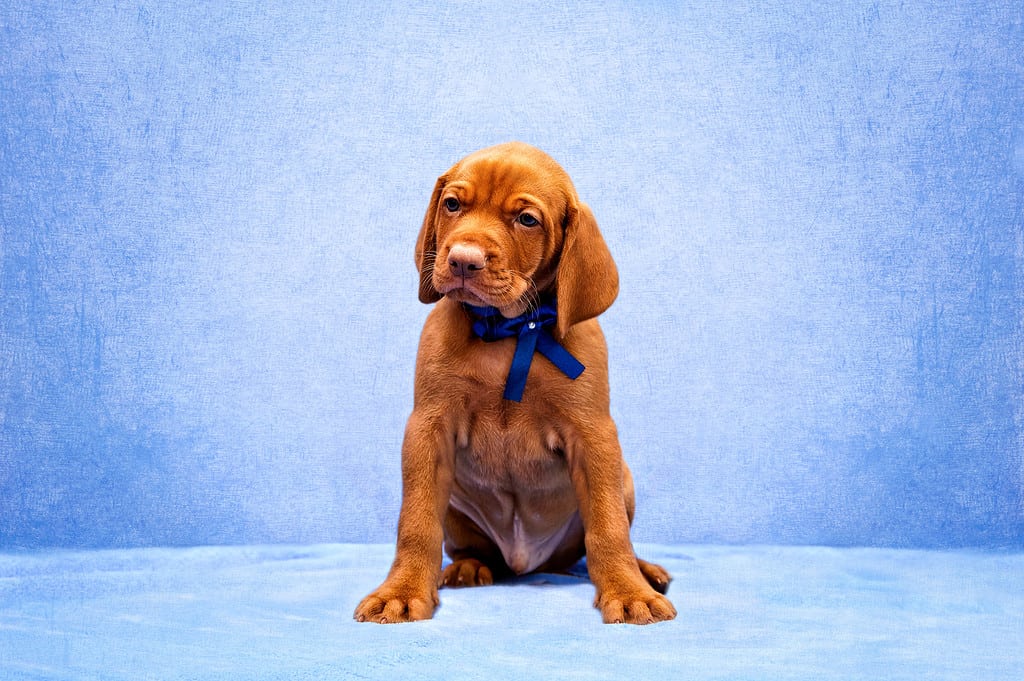
©iStock.com/Natalia Miachikova
The Vizsla And Children
The Vizsla is extremely affectionate with children of all ages. While all interactions between dogs and children should be supervised by an adult, the Vizsla is gentle and even-tempered, even tolerating rough play.
Dogs Similar To The Vizsla
As an athletic hunting dog, the Vizsla bears a strong resemblance to the following breeds:
- Wirehaired Vizsla: As the name suggests, this is the Vizsla’s current living relative. Both breeds share many of the same physical and behavioral attributes, but the main difference is that the Wirehaired Vizsla has a wire coat and harsh beard of golden sandy fur.
- Weimaraner: As mentioned previously, the Weimaraner is a large but athletic hunting dog that resembles the Vizsla, except for the darker gray coat. It is playful, protective, energetic, trainable, and extremely affectionate with the family.
- German Shorthaired Pointer: This breed is not quite as well-known as the Weimaraner, but with its streamlined body and slender but powerful legs, this breed is an all-around great hunting dog and athlete like the Vizsla. It is characterized by a short and dense undercoat, surrounded by stiff guard hairs, with heavily speckled black, white, or liver colors. It also has an upbeat and friendly personality.
Famous Vizsla Dogs
While perhaps not quite a household name, the Vizsla has made an impact on the dog show circuit and wider popular culture. In 2000, a Vizsla named Chartay became the first dog ever to win AKC championship titles in five different disciplines, including obedience, agility, and hunting. Professional basketball player Kevin Love and baseball pitcher Mark Buehrle both owned the Vizsla as well.
Popular Names For The Vizsla
If you’re still unsure about what to name your new Vizsla, then you might want to consider some of the following options:
- Kubrick
- Sandor
- Arpad
- Hunter
- Copper
- Rusty
- Daisy
- Coco
- Amber
- Ginger
Vizsla FAQs (Frequently Asked Questions)
What is a Vizsla?
The Vizsla is a medium-sized hunting dog that originated from Hungary. It is a very affectionate and loyal companion with an excellent lifespan. This breed is also remarkably versatile in its capacity to learn new tasks and tricks. It is characterized by a lean body and golden rust coat with a moderate amount of shedding.
Is a Vizsla a good family dog?
Yes, the Vizsla is considered to be an excellent family dog. It is loyal and friendly toward people of all ages. This breed also gets along very well with other dogs.
What is bad about Vizslas?
Many people may not like the Vizsla’s strong hunting instincts and very intense motor. These characteristics can’t necessarily be trained out of the dog, so if you don’t want to deal with them, then this may not be the right breed for you.
Do Vizslas bark a lot?
The Vizsla barks about a moderate amount when it’s disturbed or senses something is amiss.
How much does a Vizsla cost?
The price of a new Vizsla depends on the availability, the health, and the pedigree of the dog from the breeder. This breed usually starts out somewhere around $500 and then becomes progressively more expensive based on the quality of the dog. Many high-quality breeders will charge at least $1,000. While this may seem expensive, their standards are usually quite high, ensuring fewer health and behavioral issues. If this is unfortunately somewhat out of your price range, then you might want to consider adoption from a rescue shelter or kennel. The quality of an adopted pet can vary, but you will usually pay no more than a few hundred dollars, and these are dogs in great need of loving homes. There are some breed-specific rescue groups devoted entirely to the Vizsla. The Vizsla Club of America is one such rescue organization.
How do I pronounce Vizsla?
The name is pronounced simply as Veez-luh.
What are the key differences between Rhodesian Ridgebacks and Vizslas?
The key differences between Rhodesian Ridgebacks and Vizslas are appearance, temperament, trainability, and health.
Thank you for reading! Have some feedback for us? Contact the AZ Animals editorial team.
Sources
- American Kennel Club, Available here: https://www.akc.org/dog-breeds/vizsla/

